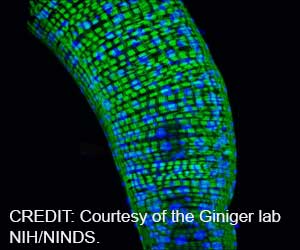The research explored the unpopular subject area and found the differences in common features of aging between normally-grown fruit flies and the antibiotic-fed ones.
‘Fruit flies fed with antibiotics lived six more days than the control flies grown under normal conditions. They also underwent slower genetic changes when they grew older in only about 30% of the genes currently reported to be related to aging.’
Was being microbe-free significant?
To derive a link between genes and aging, the team used a unique approach in which they have grown newborn male fruit flies under two different conditions. The first set was grown in a normal condition, where the second set of flies were fed with antibiotics to make them bacteria-free.
They then used advanced gene profiling techniques to explore how this change of environment affects the impact of genes related to aging in flies. From this, they found that the flies fed with antibiotics lived 63 days, whereas the control flies (not treated with antibiotics) survived only for 57 days.
“This is a big jump in age for flies. In humans, it would be the equivalent of gaining about 20 years of life. We were totally caught off guard, and it made us wonder why these flies took so long to die, ” said Arvind Kumar Shukla, Ph.D., a post-doctoral fellow on Dr. Giniger’s team.
While the previous study found many links between the age of flies and the activity of several genes, the findings of the current study showed that about 70% of those genes showed no changes in their activity when they are exposed to an environment with antibiotics.
Genetically, the bacteria-free flies resembled the 30-day old control flies, suggesting a minimal amount of alterations in the activity of genes considered the hallmarks of aging.
What could be the bacteria actually doing?
The team further explored the role of antibiotics in modulating the activity of genes related to aging. They found that the rate at which these genes undergo alterations due to aging was slower in the bacteria-free microbes (treated with antibiotics) than the normally grown flies. Many of the genes in the cluster are involved in the regulation of sleep-wake cycles, stress, and immunity.
Although the findings are yet to be investigated further, the team opines that this could help derive the role of the microbiome in impacting the link between genes and aging in higher animals.
“In the future, we plan to locate which genes are truly linked to the aging process. If we want to combat aging, then we need to know precisely which genes are setting the clock,” said Dr.Giniger
Source: Medindia



